Discover BIOptimizers - Awesome Health Podcast
BIOptimizers - Awesome Health Podcast

BIOptimizers - Awesome Health Podcast
Author: Wade Lightheart
Subscribed: 159Played: 8,199Subscribe
Share
© BIOptimizers
Description
Wade T. Lightheart, a host of the Awesome Health Podcast, is a 3-time All Natural National Bodybuilding Champion, advisor to the American Anti-Cancer Institute and Director of Education at BiOptimizers, one of the world’s most innovative nutritional supplement companies.
Wade has been involved professionally in the nutritional supplement industry for over 15 years. After his digestion totally broke down and he gained 42 pounds following a bodybuilding competition, he began to search for answers. Through a revolutionary doctor, he discovered the power of specific enzyme and probiotic strains for healing digestion and turned his health and life around.
The Awesome Health Podcast reflects Wade’s passion and mission to end needless physical suffering while helping individuals fix their digestion and transform their health.
This podcast is a fun, yet informative show about cutting-edge health tools, technology, principles and nutritional science that rapidly transform anyone’s digestion, overall wellness, and life. It’s both light (and at times hilarious), and highly instructional. Each week, worldwide leaders in their respective areas of health or nutrition are interviewed so that listeners can take their best insights and rapidly upgrade their bodies and quality of life.
Wade has been involved professionally in the nutritional supplement industry for over 15 years. After his digestion totally broke down and he gained 42 pounds following a bodybuilding competition, he began to search for answers. Through a revolutionary doctor, he discovered the power of specific enzyme and probiotic strains for healing digestion and turned his health and life around.
The Awesome Health Podcast reflects Wade’s passion and mission to end needless physical suffering while helping individuals fix their digestion and transform their health.
This podcast is a fun, yet informative show about cutting-edge health tools, technology, principles and nutritional science that rapidly transform anyone’s digestion, overall wellness, and life. It’s both light (and at times hilarious), and highly instructional. Each week, worldwide leaders in their respective areas of health or nutrition are interviewed so that listeners can take their best insights and rapidly upgrade their bodies and quality of life.
291 Episodes
Reverse
The Quest for Harmony Born amid the chaos of World War II, Udo Erasmus's journey began with trauma and survival. Fleeing Poland as a child, dodging bullets and bombs, he experienced fear, hunger, and deep mistrust in the world. By age six, he was already wondering, "There must be a way people can live in harmony." That question became the compass of his life. As Erasmus grew, so did his search for answers. He studied science, biology, psychology, and medicine, only to find these disciplines offered fragmented insights—not the holistic understanding he craved. Psychology taught thoughts and emotions but never soul. Medicine spoke endlessly about disease, but ignored health. The deeper questions remained: What is life? What is health? What is our nature? The Forgotten Inner Foundation Udo argues that every human being carries within them a core of peace, love, and wisdom—an unchanging, ever-present essence often buried under layers of distraction, trauma, and disconnection. He compares the human experience to our time in the womb, where we were suspended in pure being: no stress, no external demands, only awareness and peace. As we grow and adapt to the world, we often lose touch with this foundational state, leading to what Erasmus calls the universal ache of disconnection: heartache. Heartache is not a weakness or failure, but a signal—a call to return to ourselves. Much like thirst points us to water, heartache points us back to the source of our own being. Energy First, Matter Second A central idea in Erasmus's philosophy is that energy—not matter—is the origin and master of life. From the Big Bang to a blossoming flower, from the light in our cells to the love in our hearts, all life is governed by the flow of energy. While science seeks to understand the body through external observation, it often misses the experiential truth that life is already managing countless functions within us without our conscious control. He points to the sun as the ultimate source: it fuels plants, feeds animals, and animates human beings. From Self to Service For over 50 years, Erasmus has engaged in a daily practice to reconnect with the inner foundation of peace. Triggered by an early psychedelic experience and catalyzed by a mystical vision, he found that the answers he was chasing through intellectual study were already inside him. This practice is not religious nor scientific—it is experiential. It begins with recognizing heartache and using it as a portal inward. Once grounded in inner peace and health, Erasmus believes we naturally shift our focus from self-preservation to service. "When I feel cared for by life itself, I can ask: Where can I help?" This is the foundation for total global health—each person becoming whole, and from that wholeness, contributing to the healing of others and the planet. Erasmus's vision is not utopian fantasy. It is grounded in biology, physics, and firsthand experience. We already have the tools: sunlight, breath, food, rest, love, and awareness. By turning inward and honoring both nature and human nature, we reclaim our wholeness and can build a world rooted in health and harmony. In this podcast you'll learn... How childhood trauma can become a compass for finding universal harmony Why heartache is actually a signal pointing us back to our true nature The role of energy vs. matter in understanding life and health Practical approaches to reconnecting with your inner foundation of peace How personal wholeness naturally leads to global service and healing EPISODE RESOURCES: Website Facebook Instagram
Perimenopause is a significant transition for many women, bringing with it a series of hormonal and physical challenges, including often-unexplained weight gain, particularly around the midsection. Health expert Chemaine Linnie, a certified hormone specialist and fitness coach, offers valuable insights from her own 165-pound weight loss journey and years of guiding women through this hormonal shift. Rock Bottom to Transformation Chemaine's personal journey began at her lowest point as a teenage mother in Dublin, weighing 280 pounds. A pivotal moment—her sister cutting her out of a dress—ignited her resolve: "That was my rock bottom. That’s when I promised myself I would never go back". Through discipline, education, and a new passion for fitness, she transformed her life, eventually moving to Canada and becoming a respected wellness figure. However, as she and her clients aged, new obstacles emerged. The Real Culprit Contrary to popular belief, Chemaine emphasizes that perimenopausal weight gain isn't solely due to estrogen or a slowing metabolism. Instead, she points to adrenaline dominance and blood sugar imbalances as the primary culprits. Symptoms like irritability, sleep disturbances, rage, low libido, hot flashes, and night sweats are often indicators of high adrenaline and low progesterone, not just estrogen. The demanding modern lifestyle, especially in places like Canada, exacerbates these issues, with women juggling numerous responsibilities and feeling guilty about managing stress. Sleep: Your Secret Weapon Before diving into complicated protocols, Chemaine always starts with one thing: sleep. Not just any sleep, but deep, restorative sleep that allows your hormones to reset. Her approach is surprisingly simple. Screens off before bed. Magnesium supplementation. High-dose GABA – 1,500 mg or more. Create a quiet wind-down ritual that signals to your nervous system that it's safe to rest. When you sleep better, everything else falls into place. You make better food choices. You have energy to move your body. You feel more in control instead of constantly reacting. The next step is hormone balance. Bioidentical progesterone – what Chemaine calls "the hormone of vitality and sanity" – often plummets before estrogen does. When it's restored, you get better sleep, fewer cravings, stable moods, and even restored libido. Small Wins, Big Results Weight gain during perimenopause isn't your body betraying you. It's your body sending up flares, asking for support. The solution isn't another restrictive diet or punishing workout routine. It's about understanding what your body actually needs. Chemaine's philosophy is refreshingly realistic. Forget dramatic transformations and all-or-nothing approaches. Focus on small wins: improving one meal at a time, adding a 30-minute walk, aiming for just one pound per week. It's not flashy, but it's sustainable. As Chemaine puts it: "We deserve to live again." Your forties and fifties aren't about accepting decline – they're about reclaiming your vitality with wisdom you didn't have in your twenties. In this podcast you'll learn... Why willpower doesn’t work for weight loss in perimenopause (and what to do instead) Why most women aren't getting real rest—and the sleep protocol that changes everything How bioidentical progesterone can restore your sense of self Why small, consistent changes beat dramatic overhauls every single time EPISODE RESOURCES: Website Instagram Facebook Youtube
In the wellness world, many chase surface-level fixes, like creams, cleanses, and crash diets, while ignoring the internal systems that actually drive energy, detoxification, and glow. Cathy Goldstein, a holistic practitioner with over 40 years of experience, sees the body differently. She believes the real fix lies in supporting two overlooked systems: fascia and lymph. Cathy describes most people as walking around with a “traffic jam of toxins.” This buildup in the fascia and lymphatic system can lead to puffiness, swelling, fatigue, dull skin, and even emotional heaviness. Fascia is more than connective tissue—it’s a collagen-producing communication network that sends energetic and structural signals faster than the nervous system. The lymphatic system flows through it, clearing toxins and nourishing cells. Trauma, pollution, poor posture, or emotional baggage can block this flow. When that happens, not only does your body hold onto physical toxins, but emotional ones too. Fascia, Emotions & Self-Healing Cathy often says, “The issues are in the tissues.” She connects stuck emotions and trauma to disruptions in the fascia. By using energetic tools and neuro-emotional techniques, she helps the body rewire these patterns and release stored pain—both physical and emotional. Her approach is about restoration, not force. Treatments aim to retrain the nervous system, restore vibrational balance, and activate the body’s own self-healing mechanisms. A New Kind of Skincare Instead of applying collagen to the skin, Cathy developed a skincare line that teaches your cells to regenerate it. Her frequency-imprinted body lotion uses oleosome technology to deliver nutrients deep into the skin. Each green bead inside contains thousands of energetic signatures and bioadaptive ingredients that encourage skin to rebuild from the inside out. This is skincare that talks to your cells—helping them remember how to function at their best. Body Sculpting with Purpose Forget bruising Gua Sha tools. Cathy’s True Energy Body Sculpting Stone is ergonomically designed and infused with healing frequencies. Used just 5–6 minutes daily—especially after a shower or sauna—it opens lymphatic channels, clears fascia adhesions, and sculpts areas like thighs, belly, and underarms. Users report visible results in days: Crêpy skin softens Skin lifts and plumps in under 2 weeks Energy and emotional clarity improve It even stimulates the brain’s glymphatic system to support detox while you sleep. In this podcast you'll learn... Why fascia and lymph are the missing pieces in your wellness puzzle How emotional trauma gets stored in your tissues Why fascia moves energy faster than your nervous system How Cathy’s skincare and body tools promote deep healing and visible transformation Daily rituals that take just 6 minutes but create lasting impact Why aging doesn’t have to mean decline—it can be intuitive, vibrant, and empowered EPISODE RESOURCES: Website Social Media handles: Facebook Instragram TikTok Youtube
In today’s world, many people struggle with weight gain, a slow metabolism, brain fog, and difficulty building muscle, despite healthy diets and exercise. Health expert Sarah Banta says the cause is often in thyroid and liver health. Her insights, shared on a podcast with Wade Lightheart, highlight how these organs regulate metabolism, fat burning, and muscle building. When these organs are not working well due to toxins, stress, or poor nutrition, the body may have trouble losing fat and gaining muscle. Thyroid: Metabolic Master Switch The thyroid controls how the body makes energy. It affects our metabolism, body temperature, fat burning, mental clarity, mood, and hormone balance. Sarah notes that many people might have thyroid issues, even if tests look normal. Symptoms of a struggling thyroid include slow metabolism, fat gain, cold hands and feet, brain fog, fatigue, and muscle loss. Thyroid issues can prevent effective fat burning, no matter the diet or exercise. Liver: Metabolic Role The thyroid and liver work together. The liver converts inactive thyroid hormone (T4) to the active form (T3). If the liver is slow or congested, this conversion suffers, slowing down the thyroid. Modern lifestyles burden the liver with toxins, processed foods, and stress. This can lead to fat gain, slow metabolism, and hormonal imbalances. Liver stress can reduce thyroid and overall metabolic function. Iodine’s Essential Role Iodine is important for thyroid function and every cell in the body. Many people are iodine deficient due to depleted soils, microplastics in salt, and competition from other chemicals. Iodine helps produce thyroid hormones, supports brain function, cellular energy, immune defense, and hormonal balance. It also helps detoxify heavy metals. Optimal iodine dosing is needed to overcome deficiency and remove toxins. Liver Detox for Results An overloaded liver can block fat burning, impair thyroid conversion, cause insulin resistance, and interfere with protein absorption. Sarah’s approach uses herbs to stimulate bile flow, support detox, break down fatty liver, and optimize metabolism. Key ingredients include Milk Thistle and other herbs that help with liver health. A healthy liver allows the body to burn fat and build muscle safely. In this podcast you'll learn... Why iodine deficiency is a true health crisis. What are the causes of unexplained weight gain are. What the hidden causes of Insulin Resistance are. If you can burn fat and build muscle at the same time. How the spike protein affected our health. How thyroid health affects mental health. EPISODE RESOURCES: Website Instagram LinkedIn
The high-tech world of biohacking often focuses on physical factors for longevity, like supplements and cold plunges. However, author and biohacker Tony Wrighton suggests that mindset plays a more significant role. Drawing from his experience in behavior change and neuro-linguistic programming (NLP), Tony reveals that our beliefs about aging may impact lifespan more than diet or exercise. A Yale University study supports this idea, showing that individuals with a negative mindset towards aging live 7.5 years shorter than those with a positive outlook. This effect is more detrimental than smoking, obesity, or high cholesterol. Many in the wellness world meticulously track physical metrics but neglect the emotional and psychological aspects critical for a “longevity mindset.” Questions about resilience, purpose, and emotional stress should be addressed. Studies suggest that purpose, like having children, contributes to longevity. Human connection and physical touch also play vital roles in health, evidenced by improvements in heart rate variability (HRV) during physical interaction. Impact of Overstimulation Tony identifies overstimulation from screens as a major health crisis contributor. Deliberate screen breaks are crucial for health. The constant "on" state leads to health anxiety, sleep disruption, and hinders the body's natural healing process. Tony emphasizes that life’s best experiences, like food and love, do not require screens. Tools for Inner Change Tony advocates for various tools to support mindset work. Neuro-Linguistic Programming (NLP) helps reframe beliefs. Emotional Freedom Technique (EFT) aids in managing emotional distress. Habit Stacking involves layering positive routines to make them automatic. Tony’s most effective biohack is spending time outdoors in the morning. Longevity, for Tony, is a lifestyle built on daily rituals and belief rewiring. Key practices include daily screen-free time, 20 minutes of inner reflection, human connection, purpose, and consistent routines. The Power of Beliefs Tony stresses that in a world obsessed with optimization, we often ignore the invisible drivers of well-being. How we think and feel may be the most powerful biohacks. Before investing in expensive gadgets, we should examine our beliefs about aging and purpose. These beliefs can determine if we merely live or truly thrive. In this podcast you'll learn... How mindset can impact longevity more than physical health factors. A Yale University study reveals the impact of a negative aging mindset. The importance of purpose and human connection for well-being. Tools like NLP, EFT, and Habit Stacking for inner change. The necessity of screen breaks in the modern world. EPISODE RESOURCES: Use Zestology10 code on bioptimizers.co.uk and bioptimizers.eu
Hair plays a crucial role in our identity, often symbolizing youth and confidence. Dr. Alan Bauman, with nearly 30 years in hair restoration, has seen the profound impact of hair loss and emphasizes dispelling misconceptions. Many hesitate to seek help, thinking their hair loss isn't severe or treatments are ineffective. However, early intervention is vital. Addressing hair loss early can prevent further thinning and even reverse it. Dr. Bauman stresses this proactive approach. A common myth is that hair restoration is only for complete baldness. In reality, early action yields better outcomes. Men noticing a receding hairline and women experiencing thinning should seek evaluation. Early detection allows for non-invasive treatments and lifestyle changes to prevent further loss. Minimally Invasive Transplants The era of "hair plugs" is over. Follicular Unit Extraction (FUE) has revolutionized transplants, leaving no linear scars and allowing quick recovery. Bauman Medical prioritizes natural hairlines that suit facial features. Patients experience faster recovery, less discomfort, and natural-looking results. While transplanted follicles are permanent, other hair needs ongoing maintenance due to factors like hormones and stress. Advanced Non-Surgical Therapies Modern restoration extends beyond transplants. Options include Platelet-Rich Plasma (PRP) Therapy, using a patient's blood to stimulate growth. Exosome Therapy boosts regeneration, and PDO Threads provide support for growth. FDA-cleared Red Light Therapy, like the Bauman Turbo Laser Cap, promotes healthier hair with daily use. Early Intervention and Future Tech Hair thinning can begin earlier than many realize, sometimes as early as high school or college. Individuals with a family history of hair loss should proactively monitor their hair health. Women with conditions like PCOS are particularly vulnerable to early hair loss due to hormonal imbalances. Regular measurements and early treatments, such as PRP or nutraceuticals, can prevent irreversible damage. One promising development is hair cloning, which could eliminate supply limitations for hair transplants. While still under development, Dr. Bauman has already banked his own hair follicle stem cells in anticipation of this technology. Stem cell banking allows individuals to preserve their healthiest hair follicles for future regenerative therapies, ensuring they are ready when cloning becomes a reality. For those concerned about hair loss, early action is crucial. Avoid quick fixes and consult a qualified, board-certified hair restoration physician. In this podcast, you’ll learn: Latest advancements and misconceptions in hair restoration. Minimally invasive transplant techniques with natural results. Advanced non-surgical therapies like PRP, Exosome, and Red Light Therapy. The importance of early intervention and future technologies like hair cloning and stem cell banking. EPISODE RESOURCES: Instagram LinkedIn Facebook
Dr. Jason Giles, a board-certified addiction medicine expert, former anesthesiologist, and a person who has personally battled and overcome substance addiction, recently appeared on the *Awesome Health Podcast* by BiOptimizers. With over 27 years of medical experience and leadership in managing 40 addiction treatment centers, Dr. Giles offers an honest and compassionate view into addiction and recovery. Addiction isn't just a medical condition, but a human challenge impacting all facets of life, from drugs and alcohol to screen time and food. These behaviors often serve as emotional coping mechanisms, hijacking the brain’s reward system and substituting pleasure for well-being. Modern Addiction Triggers Substance use is not new, but the availability and potency of substances and stimuli have changed. Modern addictions are amplified by 24/7 access, social pressures, and chemically engineered substances that overstimulate neurotransmitters like dopamine and norepinephrine. Addiction isn't a lack of willpower, but a rewiring of the brain. Substance use builds tolerance, creating a cycle of withdrawal, craving, and temporary relief. "Addiction is when we begin treating withdrawal with the very thing causing the problem," says Dr. Giles. This makes addiction chemical, emotional, and behavioral. The Journey Through Addiction Dr. Giles simplifies addiction into three stages: Fun, Fun with Problems, and Just Problems. It begins as an enhancement, then consequences mount, and eventually, the behavior continues despite harm. This trajectory isn't limited to substances, as emotional eating or overworking can follow the same path. Raised in an alcoholic household, Dr. Giles became a successful anesthesiologist, but carried an internal void. Medical access led to experimentation, and Fentanyl became his drug of choice. An intervention led him to a recovery program with a 95% success rate. Redefining Recovery Detox is only the first step. True recovery is slow and non-linear. Dr. Giles believes in meeting patients where they are, using medication to ease withdrawal and building trust. Many team members are in recovery themselves, creating supportive environments. When the pandemic hit, Dr. Giles led in telehealth for addiction care, reducing relapses and shortening the gap between treatment and reentry. Emerging therapies, like GLP-1 agonists and TMS, offer hope, but long-term change requires behavior shifts. Anyone can struggle with addiction, and everyone deserves a path out. "We have to stop treating people like problems and start treating them like people," says Dr. Giles. In This Podcast You’ll Learn… The three stages of addiction and how to identify them. Why modern society amplifies addictive behaviors. How Dr. Giles overcame his own addiction. Emerging therapies for addiction treatment. The importance of compassion in addiction recovery. EPISODE RESOURCES: Website
Chris Mirabile's journey to achieving a biological age 13.6 years younger than his chronological age is not a tale of luck but of deliberate action and deep scientific understanding. His transformation extends beyond mere youthful appearance. He’s aging 31% slower than average. This remarkable feat is rooted in intense self-education and a disciplined lifestyle geared towards optimizing health at a molecular level. His story began at 16, when a severe seizure led to the discovery and surgical removal of a brain tumor. This life-altering event shifted his focus from basic fitness to a profound understanding of human biology and aging. A Scientific Awakening Chris transitioned from merely wanting to look fit to optimizing his long-term well-being. Utilizing academic databases like PubMed, he educated himself on the science of aging and its biological processes. The "Hallmarks of Aging" paper was a turning point, revealing aging not as inevitable, but as a series of manageable biological processes. This realization drove him to a proactive approach to health, aiming to manage and slow aging. Targeting the 12 Aging Mechanisms Today, Chris's lifestyle and biotechnology company NOVOS are structured around the 12 mechanisms that drive aging. Here’s a quick look at how he addresses each: Mitochondrial Dysfunction: Enhanced through exercise and specific nutrients. Cellular Senescence: Reduced via supplements and fasting. Loss of Proteostasis: Improved by autophagy-activating practices. Intercellular Communication: Maintained by limiting inflammation. Genomic Instability: Addressed with hormetic stress like cold exposure. Epigenetic Alterations: Supported with lifestyle changes. Telomere Shortening: Minimized with diet and recovery. Deregulated Nutrient Sensing: Balanced through feeding/fasting cycles. Stem Cell Exhaustion: Preserved with low-inflammation living. Inflammaging: Reduced with anti-inflammatory strategies. Disabled Autophagy: Enhanced by intermittent fasting and polyphenols. Gut Dysbiosis: Improved through diet diversity and probiotics. By targeting these mechanisms, Chris actively works to slow and even reverse biological aging. Lifestyle as Medicine For Chris, lifestyle is the foundation of health optimization. His daily routine reflects the principles he has gleaned from his research. His diet follows a Mediterranean model, emphasizing whole plants, healthy fats, and moderate protein. He integrates periodic fasting to optimize longevity pathways. His exercise regimen is multifaceted, combining resistance training four times a week, cardio three times a week, and daily walking. Sleep is prioritized, with seven to nine hours tracked via the Oura Ring. Stress management is crucial, as well as incorporating journaling, meditation, and reframing challenges as opportunities for growth. He also utilizes specific supplements, such as NOVOS Core, developed from biotech research to support the hallmarks of aging. NOVOS: Measuring and Managing Aging NOVOS embodies Chris's belief in the scientific manageability of aging. The company offers precise formulations like NOVOS Core, which has shown lifespan extension in animal studies, and biological age testing via epigenetic analysis. The NOVOS Life app provides digital guidance, using AI to generate personalized longevity plans and estimate biological age, making longevity accessible and manageable. In this podcast, you'll learn... How Chris Mirabile reduced his biological age by 13.6 years and its importance. The 12 aging mechanisms Chris targets with NOVOS. Practical lifestyle adjustments for longevity, including diet, exercise, and stress management. The role of scientific innovation in managing aging. How to reframe challenges and use adversity for personal growth. EPISODE RESOURCES: Website LinkedIn Instagram xCom
Joe Cohen's journey to optimal health is a story of self-discovery and a drive to find answers beyond conventional medicine. Struggling with chronic health issues like fatigue, inflammation, and brain fog, Joe took charge of his health by diving into genetics, biomarkers, and biohacking. A Start of Struggle: The Search for Answers Joe's early attempts to seek help from mainstream doctors were unfruitful. Frustrated, he embarked on self-experimentation. He started with lifestyle changes like intermittent fasting and cold plunges, which offered some relief. However, it was when Joe incorporated supplements into his regimen that he began to experience more significant improvements. The Quest for Scientific Answers Determined to understand his body, Joe turned to scientific resources like PubMed and Wikipedia. He discovered that health protocols were not one-size-fits-all. Joe tried various diets, such as veganism and the Bulletproof Diet, but ultimately found success with a carnivore and lectin-free approach. He realized that his body didn't respond well to grains and legumes, leading him to adopt a lectin-avoidance diet early on. The Power of Genetics and Personalized Experimentation Joe realized that understanding his individual biology was key. He learned that genetic factors, such as immune system dominance, played a crucial role in how his body reacted to different foods and supplements. This led to the development of SelfDecode, a platform providing genetic insights for personalized health optimization. He found that genetic testing, combined with lab testing and supplements, offered a holistic approach. Supplementation: The Game Changer For Joe, supplementation became a cornerstone of his biohacking strategy. He believes supplements have had the most significant impact on his health. With over 160 supplements in his daily regimen, Joe emphasizes the importance of understanding which supplements are best for an individual’s unique needs. He encourages guided experimentation to find the right mix, considering genetics, biomarkers, and personal health goals. The Future of Biohacking: AI, Genetics, and Longevity Joe envisions a future where breakthroughs in organ replacement and genetic manipulation could significantly extend human lifespan. He also sees AI playing a crucial role in improving genetic research, health recommendations, and biohacking strategies. The Key to Rewiring Your Health Joe Cohen’s journey shows that optimizing your health requires scientific inquiry, personalized experimentation, and an open mind toward biohacking tools. By understanding your body deeply and embracing self-experimentation, you can create a health protocol tailored to your unique needs. In this podcast, you'll learn: How Joe took control of his health when conventional medicine failed him. The power of personalized supplements and why they are crucial for optimal health. Why understanding your unique biology and genetics is essential for health optimization. How Joe developed a lectin-free diet before it became mainstream and why it worked for him. Joe's vision for the future of biohacking, including AI and genetic manipulation for longevity. EPISODE RESOURCES: Website Instagram Youtube
Medical errors rank as the third leading cause of death in the United States, following heart disease and cancer. These preventable mistakes, including misdiagnoses, medication errors, and communication breakdowns, contribute to a significant number of fatalities annually. Understanding these risks and actively participating in one's healthcare is crucial and can be a matter of life and death. The Reality of Medical Errors Julie Siemers, a nurse with over forty years of healthcare experience, gained firsthand insight into medical errors when her parents were in an airplane accident and she had to advocate for their care from a distance. This personal experience, along with her nursing background, inspired her to pursue advanced degrees focusing on patient safety. Her research revealed that despite growing awareness, medical errors remain a persistent problem. Understanding and Preventing Errors Hospital safety varies considerably, and it's important to know that hospitals receive safety grades based on patient outcomes and risk factors. Websites like hospitalsafetygrade.org allow individuals to check these ratings, which range from A to F and assess 22 safety categories, including preventable blood clots and post-surgical complications. Early warning signs of medical distress often appear hours before a major event occurs. Physiological indicators of deterioration can be evident 6 to 24 hours before a crisis. Family members can play a critical role by observing behavioral or neurological changes that healthcare providers might miss. For example, a stroke patient with a feeding tube should never have their bed laid flat due to the increased risk of aspiration pneumonia. Medical misdiagnoses are more common than many realize, with studies suggesting that 33% of emergency room diagnoses are either incorrect or missed.. It is essential for patients to always follow up on test results and seek second opinions, especially for significant diagnoses. While individual errors happen, many medical errors are due to systemic failures. The case of nurse RaDonda Vaught, who administered the wrong medication due to hospital system flaws, illustrates this. Investigations uncovered multiple hospital errors, including malfunctioning medication cabinets that bypassed safety measures. Alarmingly, communication breakdowns, whether between healthcare providers or between medical teams and patients, contribute to 70% of patient harm cases. Informed patients tend to have better outcomes. The case of a man with undiagnosed sleep apnea who died from respiratory depression after being given opioids post-surgery highlights the importance of knowing one's medical history and potential drug interactions. Patients should question, research, and advocate for their well-being. Wrong-site surgeries, although seemingly unthinkable, occur about 20 times per week in the U.S.. Patients should actively confirm the correct procedure with their surgeons before entering the operating room. Artificial intelligence (AI) is being implemented in medical diagnostics, particularly in radiology, to improve diagnostic accuracy by identifying abnormalities. However, AI is not infallible and can produce errors, making human oversight essential. Clear communication is a fundamental way to prevent medical errors. Family members should attend doctor visits, take notes, and ask clarifying questions. The “3 P’s” approach can be helpful: Be Present during key discussions and hospital rounds. Be Polite, as healthcare interactions can be stressful for both parties. Be Persistent if concerns are not addressed, escalating to higher authorities if necessary. Discussing wishes with family and completing legal documents like power of attorney can ensure personal healthcare decisions are respected. The healthcare system faces challenges with a nursing shortage and declining competency levels, which can impact patient safety. Studies have shown a decrease in the percentage of new nurses deemed practice-ready. High patient loads and burnout contribute to nurses leaving the profession. Taking Control of Your Healthcare Like a ship captain navigating a journey, the doctor provides the map, but the patient ultimately steers the course. Building a network of informed individuals can empower patients to make the best choices for their health and longevity. The reality of medical errors as the third leading cause of death underscores that staying informed and advocating for oneself in the healthcare system is not just important—it’s lifesaving. In this podcast, you will learn... Why medical errors are the third leading cause of death The importance of being proactive in your healthcare Strategies for effective communication with healthcare providers How hospital safety ratings can inform your choices Key warning signs to watch for in a patient's condition The role of systemic issues in contributing to medical errors EPISODE RESOURCES: Website Instagram Facebook LinkedIn YouTube Tik Tok
Lee Holden, a renowned Qigong master and author, shares insights about energy, healing, and the transformative power of slowing down in a fast-paced world. Finding Qigong Lee's journey with Qigong began after a soccer injury during his sophomore year in college. After conventional treatments failed, he sought help from a martial arts teacher who used Chi for healing. After a few Qigong treatments, Lee was ready to play soccer again. This recovery sparked his passion for Eastern healing practices. Understanding Chi At the core of Qigong is the concept of energy, or Chi, which refers to life force. In Chinese medicine, when someone is sick, it's believed that their Chi is blocked. Eastern practices aim to address root causes, leading to "positive side effects" where treating one condition improves multiple aspects of wellbeing. The Benefits of Slowing Down Slowing down can enhance our energy, productivity, and quality of life. Qigong is described as a balanced practice that connects us to ourselves and the present moment. Slowing down helps with: Enhanced productivity Better digestion Fewer mistakes More meaningful moments Slowing down also slows the aging process because it reduces stress. Qigong tradition often counts breaths rather than years, with slower breathing correlating with longer life. Adding life to your years: By slowing down, meaningful moments and memories are created and life is truly experienced. Getting Started with Qigong: Try 7 minutes a day of Qigong. Even a brief practice can activate your Chi, stretch lines of tension, and incorporate flowing movements. In this podcast you will learn: The power of slowing down. How Qigong enhances energy. How slowing down leads to fewer mistakes How to breathe slower for longevity How to create more meaningful moments A simple way to get started with Qigong In a world that often values speed and constant productivity, deliberately slowing down can give you clear intention. EPISODE RESOURCES: Holden Qigong official Youtube Instagram
In a world dominated by synthetic solutions, ancient herbalism offers a powerful alternative for health, performance, and longevity. Logan Christopher, strongman, herbalist, and educator, bridges traditional wisdom with modern goals. His journey highlights the relevance of nature-based healing. Learning from Nature's Power Ancient healers observed the natural world to uncover potent remedies. For example, noting the strength of ants, they used ant extract for vitality, which is still valued today for its effects on energy and endurance. This method of learning from nature remains a cornerstone of effective herbalism. Herbs that provide noticeable benefits are crucial. Cordyceps mushrooms enhance workouts, pine pollen supports hormones, and blue vervain calms the nervous system. These herbs have long histories of traditional use, with modern science now validating their efficacy. The Potency of Spagyric Tinctures Lost Empire Herbs honors herbal traditions using spagyric tincturing, an ancient method that involves burning plant material to extract minerals and reincorporating them into tinctures. This process creates more complete and potent remedies. Ancient herbalists understood that healing is about the whole plant and supporting the whole human, not just isolated chemicals. Reconnecting Through Herbalism Modern life disconnects us from nature, leading to various chronic diseases. Herbalism can rebuild that connection. It's not about rejecting modern medicine but remembering the natural solutions that have supported human health for millennia. Whether it's enhancing vitality with ant extract, calming the mind with blue vervain, or restoring balance with pine pollen, ancient herbal wisdom offers valuable solutions. True herbalism involves engaging with nature, experiencing the effects, and trusting its intelligence. In this podcast you'll learn: How nature served as the original teacher for ancient healing systems. The concept of "feelable" herbs and their tangible benefits. Spagyric tincturing, an alchemical method for potent herbal remedies. The importance of reconnecting with nature through herbalism in modern times.
Dr. Nicole F. Roberts is a catalyst for change with a deep understanding of human behavior and public health systems. Her work spans diverse cultures and sectors, focusing on how generosity, authenticity, and human connection can create a better world. A Public Health Lens Public health, according to Dr. Roberts, encompasses a broad range of factors, including diet, environment, sleep, and social interactions. She notes that human behaviors are consistent across cultures, emphasizing the need for culturally sensitive approaches to public health. Her work bridges the gap between high-level policy and community realities, ensuring that initiatives are relevant and effective. The Power of Generosity Generosity is a key aspect of Dr. Robert's philosophy. She believes that humans have a unique ability to give selflessly, creating positive impacts for both giver and recipient. This is supported by science, as acts of kindness release endorphins, serotonin, and oxytocin, fostering empathy and connection. Dr. Roberts champions generosity as a tool for creating sustainable impact through philanthropy, policy, and personal action. Her upcoming book, "Generosity Wins," uses a business fable to illustrate the transformative power of generosity. Authenticity and Transparency In today's digital age, authenticity and transparency are critical, especially in corporate social responsibility. Dr. Roberts highlights that genuine leaders and organizations stay true to their missions, understanding that actions are under constant scrutiny. Technology amplifies accountability, which pushes leaders to act with integrity. Small acts of kindness, like listening, can have profound effects. Research shows that generosity is linked to longer lifespans, better health, and stronger relationships. Washington, DC's Impact Dr. Roberts offers an insider's perspective on Washington, DC, highlighting its nonprofit and public service community and their commitment to improving lives. These organizations tackle global challenges with dedication, often with limited resources. Younger generations prioritize long-term impact over recognition, driving innovation in philanthropy and community development. In this podcast you will learn: How public health impacts a broad range of factors including diet, environment, sleep, and social interactions That human behaviors and reactions are consistent across cultures and history The importance of tailored, culturally sensitive approaches to addressing public health challenges. That generosity is a cornerstone of effective leadership and acts of kindness trigger positive brain responses. How to use generosity as a powerful tool for creating sustainable impact. The importance of authenticity and transparency, especially in corporate social responsibility How even small acts of kindness carry profound effects and can benefit the giver as well as the receiver EPISODE RESOURCES: Generosity Wins website Health and Human rights website Instagram Linkedin
The convergence of ketamine therapy and executive coaching is an innovative approach to personal and professional growth, drawing from neuroscience, psychology, and leadership development. Ketamine for Mental Flexibility and Adaptability Ketamine, traditionally used as an anesthetic, has gained recognition for its potential to enhance mental flexibility. By fostering neuroplasticity—the brain's ability to reorganize and form new neural connections—ketamine facilitates adaptability and learning. Dr. Paulus emphasizes that in the 21st century, the greatest skill lies in learning, unlearning, and relearning. This aligns with modern leadership needs for quick pivots and creative problem-solving. Executive coaching also aims to build resilience and maintain a growth mindset. Ketamine therapy can complement this by fostering openness and suggestibility. When used responsibly, ketamine can help executives access deeper self-awareness and overcome limiting beliefs. However, the heightened suggestibility requires careful guidance to ensure beneficial outcomes. Integrating Tradition and Modern Practices Psychedelic compounds like ketamine have roots in ancient practices for communal healing and spiritual growth. Dr. Paulus emphasizes the importance of carefully integrating these traditions into modern therapy, tailoring interventions to individual histories and needs. This approach is already in use at his clinic, which combines traditional and non-pharmacological methods such as neurofeedback. Ethical Considerations and Practical Applications The use of ketamine in executive coaching raises ethical questions. Robust frameworks are needed to guide its application. This includes assessing the intentions of those administering ketamine and ensuring a supportive environment. Transparency and collaboration between medical professionals and coaches are crucial for responsible use. Ketamine sessions can help leaders overcome burnout, anxiety, and rigid thought patterns, promoting clarity. This can also enhance creativity by opening critical learning periods in the brain. The combination of coaching and therapy can deepen self-awareness and empathy, important for effective leadership. Individualized approaches, such as combining ketamine with journaling or mindfulness, enhance the integration of insights. The convergence of ketamine therapy and executive coaching offers a promising path for cultivating resilience and adaptability. In this podcast you will learn: Ketamine’s ability to promote neuroplasticity which helps with adaptability and learning How ketamine can foster openness and suggestibility, aiding in self-awareness. The integration of ancient traditions with modern therapeutic frameworks Key ethical considerations for ketamine use in executive coaching How ketamine sessions help leaders overcome burnout, anxiety, and rigid thought patterns Combining ketamine with journaling or mindfulness enhances integration of insights EPISODE RESOURCES: Website
The Innovation Journey Elliot Justin, an emergency physician, was inspired to explore sexual health and rehabilitation techniques following a horseback riding accident in 2015. He experimented with neuromodulation and other methods to address gaps in existing tools and treatments, which led to advancements in intimacy wearables. The Link Between Sexual and Cardiovascular Health Research indicates a strong connection between sexual and cardiovascular health: Men who experience fewer than one nocturnal erection per night have a 50% chance of having a heart attack within two years. Additionally, 88% of men who suffer strokes report experiencing erectile dysfunction (ED) in the three months before the stroke. The medical field often treats the symptoms of ED instead of addressing underlying cardiovascular or systemic health issues. Modernizing the Cock Ring Traditional cock rings are often stigmatized and uncomfortable. To address these issues, Elliot Justin developed a modernized version that is comfortable even when flaccid. This device increases erection hardness, duration, and orgasm intensity. Clinical studies have shown that this device is comparable to Cialis in maintaining erections while enhancing orgasm quality. Tech Ring and Data-Driven Approach The tech ring collects and analyzes sexual health data. This includes tracking frequency, duration, and quality of nocturnal erections, as well as monitoring performance during intercourse. It provides personalized insights to assess the impact of treatments. The data is anonymized, securely stored, and HIPAA-compliant to ensure user confidentiality. The tech ring tracks frequency, duration, and quality of nocturnal erections, and monitors performance during intercourse, providing personalized insights to assess the impact of treatments. The data is anonymized, securely stored, and HIPAA-compliant to ensure user confidentiality. In this podcast you will learn... The connection between sexual health and cardiovascular health. How intimacy wearables can improve sexual function. How a modernized cock ring addresses the issues of traditional rings. The importance of addressing the root causes of ED. How data from intimacy wearables provides personalized insights. How to improve sexual wellness as individuals age. How consistent sexual activity is essential for maintaining sexual health. BIO: Elliot Justin is the CEO and Founder of FirmTech, a sex tech company focused on improving men’s erectile fitness. He has a background in Emergency Medicine and healthcare technology consulting. He also founded and sold Pegasus Emergency Group and Swift MD. He pursued Slavic Studies at Harvard University and studied medicine at Boston University. EPISODE RESOURCES: Website Instagram
Adam Parker's story begins in the bustling corporate environment of London. The high-stress lifestyle took its toll, manifesting in poor digestion, anxiety, and low testosterone. Symptoms like hair loss and muscle loss not only affected his physical health but also his confidence and emotional well-being. Conventional medical treatments—ranging from steroid creams to antidepressants—offered temporary relief but failed to address the root cause. The Shift to Holistic Health Dissatisfied with allopathic solutions, Adam explored functional and holistic approaches. He experimented with various supplements and biohacks but found limited improvement. The game-changer came unexpectedly: a liver cleanse that highlighted the profound impact of detoxification. Adam realized that true healing involved removing toxins, not just adding nutrients. Key Insights on Detoxification Detox as a Pillar of Health: Detoxification is one of several pillars, alongside nutrition, sleep, community, and spiritual connection. Modern life exposes us to unprecedented levels of toxins, making detoxification essential. Individualized Detox Pathways: Everyone's detoxification journey is unique. Factors such as genetics, lifestyle, and childhood environment influence how effectively one can eliminate toxins. Understanding these factors helps tailor the detox process. Mind-Body Connection: Adam emphasizes the mental aspect of detox. Our belief systems and mindset play crucial roles in overall health. Controlling external inputs — such as avoiding mainstream news — can help maintain positive mental energy. The Detoxification Process Toxin Storage: The body stores toxins in layers—blood, fat, tissue, and organs. When overwhelmed, it opts to store toxins rather than eliminate them. Herxheimer Reactions: Detoxing can temporarily cause flu-like symptoms as toxins release. Retracement reactions can also resurface old symptoms and emotions. Role of Binders: Substances like bentonite clay and zeolite help bind and safely remove toxins. Gut and Liver Health: The Foundations Colon Health: Importance: The colon is a primary detoxification pathway. Regular bowel movements are essential (at least once daily). Methods: Traditional colonics are effective but costly. Enzyme-based cleanses, like Zen Cleanse, efficiently remove mucoid plaque, reducing inflammation and improving nutrient absorption. Liver Health: Central Role: The liver performs over 500 functions and processes all toxins. Supporting liver health is crucial for overall detoxification. Approaches: Basic support includes herbs like milk thistle and dandelion root. Deeper cleanses address the liver’s core issues, crucial in a world filled with heavy metals, EMFs, and chemical overloads. Practical Steps for Detox and Wellness Clean Your Environment: Assess personal care products, air quality, and EMF exposure. Gut-Healing Foods: Introduce bone broth, fermented foods, and other gut-friendly items. Balance and Flexibility: Build a strong foundation, but allow occasional indulgences. Adam Parker’s Philosophy: Empowerment and Critical Thinking Adam’s mission is to educate clients, empowering them to share knowledge with their families. He encourages skepticism—questioning mainstream narratives and even his advice. Intuition and personal research are key to making informed decisions about health. Final Thoughts: The Holistic Path to Health Detoxification is more than a physical cleanse; it’s a comprehensive journey involving the mind, body, and emotions. With dedication and a systematic approach, it can transform well-being. True health recovery requires self-awareness, education, and an unwavering commitment to the process—values at the core of Adam Parker’s philosophy. EPISODE RESOURCES: Instagram
Cathy Goldstein's Journey After battling Crohn's disease and finding traditional medicine insufficient, Cathy Goldstein discovered the power of energy medicine through acupuncture. This experience led her to believe that hospitals, while crucial for acute care, often lack a holistic perspective. This realization inspired her to merge energy medicine with skincare. The Science of Energy Medicine Cathy's approach centers around three interconnected "nervous systems." These include: The physical nervous system, responsible for transmitting sensory signals. The liquid nervous system, encompassing hormones, neuropeptides, and biochemical responses. The bio-photon highway, a complex communication network using light energy within the body. This biophoton concept aligns with quantum physics, specifically the observer effect, which suggests that focused attention can trigger physical changes. By directing energy through specialized tools, individuals can stimulate their body's inherent healing mechanisms. Functional Skincare Functional skincare prioritizes regeneration over superficial solutions. Cathy emphasizes the following principles: Active Ingredients: The effectiveness of active ingredients relies not only on their percentage but also on their quality and origin. Transparency: Many skincare products conceal toxins under proprietary labels, especially in fragrances, potentially containing hundreds of chemicals that bypass FDA regulations. Natural Processes: Instead of introducing external substances like collagen, Cathy's methods train the skin to produce its own collagen and support natural muscle function. Skincare Protocols Tru Energy Skincare offers a comprehensive system infused with biophoton frequencies. This includes: Hydrating Cleansers and Scrubs: Gentle, nourishing products that avoid stripping the skin. Exfoliation uses jojoba beads and natural fruit enzymes to remove dead skin without micro-scarring. Lymphatic Drainage Protocols: Special techniques help release toxins, improving skin vitality by addressing underlying muscle tension and structure. Specialized Tools: Frequency-enhanced wands and serums work together to stimulate acupuncture points, promoting "Chi" (life energy) flow and revitalizing the face. In this podcast you will learn: Discover the science behind bio-photon energy and its application in skincare. Understand the principles of functional skincare and its focus on regeneration. Explore the benefits of lymphatic drainage and its role in skin health. Learn about specialized tools and techniques to enhance your natural beauty. Gain insights into Cathy Goldstein's journey and her approach to holistic wellness. EPISODE RESOURCES: Website Facebook Instagram
Daniel Packard, a mechanical engineer, spent eight years researching and developing a system to help people overcome the "funky 5": anxiety, perfectionism, procrastination, people-pleasing, and self-doubt. His company, Full Liberation Technology, has helped thousands of people achieve lasting freedom from these challenges by addressing their root cause: fear. Beyond Symptom Management Packard criticizes the "improvement industrial complex," which he believes focuses too much on awareness and managing symptoms without addressing the underlying cause of mental health challenges. He argues that fear is the common root of the "funky 5," and traditional methods that address individual symptoms or encourage "facing your fears" offer only temporary relief. His approach emphasizes measurable results and sustainable solutions that target fear directly. The Body's Role in Fear Packard's approach is unique because it focuses on the body's role in fear. While traditional methods often center on thought-based therapies, Packard contends that fear originates in the body. Physical sensations associated with fear then influence the mind, creating anxious narratives. He believes that calming the body is more effective for achieving lasting relief from fear and anxiety. One of Packard's clients experienced significant improvement in anxiety and procrastination simply by focusing on bodily sensations. Recalibrating the Nervous System Packard attributes many mental health challenges to a malfunctioning nervous system. He explains that a healthy nervous system allows individuals to feel safe and resilient. When the nervous system is dysregulated, issues like perfectionism, procrastination, and people-pleasing arise. He compares these mental health challenges to physical injuries, highlighting the impact of a dysregulated nervous system on behavior and emotional health. Packard believes that modern society lacks understanding of how to maintain nervous system health, and daily habits can unknowingly damage it. His program focuses on recalibrating the nervous system through simple, actionable steps to achieve long-term stability and resilience. In this podcast, you will learn... How a "malfunctioning nervous system" can lead to common challenges like procrastination and perfectionism Why traditional advice to "face your fears" only provides temporary relief, and what a more effective approach looks like Simple, actionable steps you can start taking today to recalibrate your nervous system and maintain long-term mental well-being Why self-help books and the "improvement industrial complex" can sometimes be dangerous or ineffective in addressing the root cause of mental health challenges EPISODE RESOURCES: To experience first hand the effectiveness of Daniel’s system, he is offering you a video training ‘From Band Aids To Upgrades’. Don´t wait, book 20 minute coaching session with Daniel: To get that go to www.danielpackard.com Facebook Instagram Youtube LinkedIn
Joe Hoye, a health coach and author of The Diet Detox, challenges the traditional dieting mindset and its negative impacts on the body. He offers an alternative approach that emphasizes sustainable wellness by focusing on building a strong foundation for long-term health. The Damage of Diet Culture Hoye's method stems from his experience working with clients, particularly women, who have endured repeated cycles of dieting. This pattern often leads to “metabolic nightmares”—a slowdown of metabolism caused by muscle loss and erratic eating habits. When the focus is solely on weight loss, muscle mass is frequently sacrificed. Without a strong muscular foundation, the body struggles to maintain a healthy metabolism, making subsequent weight loss attempts even harder Building a Foundation for Long-Term Health Hoye's two-phase approach prioritizes creating a sustainable foundation over quick weight loss. This "foundations" phase concentrates on establishing habits that bolster muscle and metabolic health: Exercise Consistency: Regular, moderate exercise, such as going to the gym 3-4 times per week, helps build and maintain muscle while boosting metabolism. Nutrition Essentials: Hoye encourages incorporating protein into every meal to support muscle retention. He stresses the importance of understanding individual needs and getting balanced nutrition, rather than following restrictive diets. Sleep Quality: Quality sleep is crucial for metabolic health and muscle recovery. Establishing a consistent sleep routine and good sleep hygiene practices is essential. Reshaping with Purpose and Preparation Once a solid foundation is established, the focus shifts to a "reshaping" phase. This phase involves refining and personalizing goals, emphasizing preparation and consistency for lasting results. This approach contrasts with the instant-gratification mentality of diet culture, promoting sustainable, evidence-based methods instead. Detoxifying From Diet Culture: Key Mindset Shifts Hoye encourages these mindset shifts to help clients detox from diet culture: Shift Focus from the Scale: Instead of chasing a specific number, aim for a body that feels and functions well. Recognize Muscle as the Foundation: Building muscle supports overall health, helps maintain metabolism, and allows the body to adapt to changes in diet and exercise without drastic impacts on weight or energy levels. Simplify Health: Prioritize balanced eating, regular exercise, and quality sleep over trendy, extreme regimens. Embrace Discomfort for Growth: Building new habits can be uncomfortable, but this discomfort fosters lasting change and resilience. Logical Tracking Over Emotional Responses: Focus on measurable progress in areas like gym performance, sleep, and general energy levels to observe real improvements without being swayed by daily fluctuations in mood or appearance. EPISODE RESOURCES: GIVEAWAY! Instagram
Have you ever wondered why some people seem to effortlessly maintain a healthy weight while others struggle despite their best efforts? Or why do certain individuals experience anxiety and depression more intensely than others? The answer might lie within your DNA. The Impact of Genetics on Your Health Elwin Robinson's health journey is a testament to the powerful influence of genetics. While genetics can predispose us to specific health conditions, it doesn't mean we're destined to suffer. In his late twenties, Elwin experienced chronic fatigue, which he linked to both his genes and unhealthy lifestyle habits. His family history, marked by his father's chronic fatigue syndrome and his mother's passing from cancer, underscored the role genetics played in their health. Elwin embraced a healthier lifestyle, eliminating alcohol, smoking, and processed foods. He incorporated holistic practices like fasting, yoga, and detoxing into his routine. Despite these positive changes, he faced persistent health issues, including debilitating pain related to digestive problems. Genetic testing finally revealed his predisposition to conditions like sphincter of Oddi dysfunction and cholestasis. These conditions hindered his body's detoxification processes. Decoding Food Sensitivities Food allergies and intolerances can manifest in various ways, often with subtle, easily overlooked symptoms. Many individuals experience anxiety, depression, digestive discomfort, or even heart failure linked to undiagnosed food sensitivities. Elwin's experience exemplifies this. Even though genetic tests indicated no specific food allergies, Elwin's digestive issues worsened as he aged. Further genetic testing revealed that his food sensitivities were likely connected to bile toxicity and gut dysbiosis, not typical allergies. Genetic reports can pinpoint sensitivities to compounds like histamine, salicylates, and oxalates, often hidden triggers. These substances are found in healthy foods, including fruits, vegetables, and oils. The Genetic Roots of Mental Well-being Anxiety and depression are often perceived as purely mental health issues, but genetics can significantly influence our emotional experiences. For Elwin, chronic pain and unresolved health concerns fueled his anxiety and insomnia. Genetic testing revealed a genetic variant that slowed his body's breakdown of stress chemicals, shedding light on the biological underpinnings of his mental health challenges. This highlights the concept that some individuals may be genetically predisposed to anxiety and depression, making it more difficult for them to regulate their emotions. These individuals may benefit from personalized support, including specific nutrients and lifestyle modifications, to achieve mental balance. For instance, low levels of oxytocin (often called the "love hormone") can contribute to feelings of emotional emptiness and even trigger addictive behaviors like overeating. DNA's Influence on Weight Management If you've struggled with weight loss despite trying various diets and exercise plans, your genes may be playing a role. Historically, obesity rates were low, even when diets included sugar and saturated fats. This suggests that modern environmental factors, combined with individual genetic differences, contribute to the obesity crisis. Some individuals have a genetic predisposition to insulin resistance, making it harder to shed pounds. Others may experience hormonal imbalances that affect hunger, fat storage, and metabolism. Even variations in thyroid function, like suboptimal or undiagnosed hypothyroidism, can lead to unexplained weight gain. In this podcast, you will learn: The impact of genetics on conditions like chronic fatigue How food sensitivities may be related to bile toxicity and gut health The influence of genetics on anxiety, depression, and emotional well-being How DNA can affect weight loss efforts and metabolic processes The importance of personalized health insights based on genetic testing EPISODE RESOURCES: Website Facebook Twitter YouTube Podcast
 United States
United States

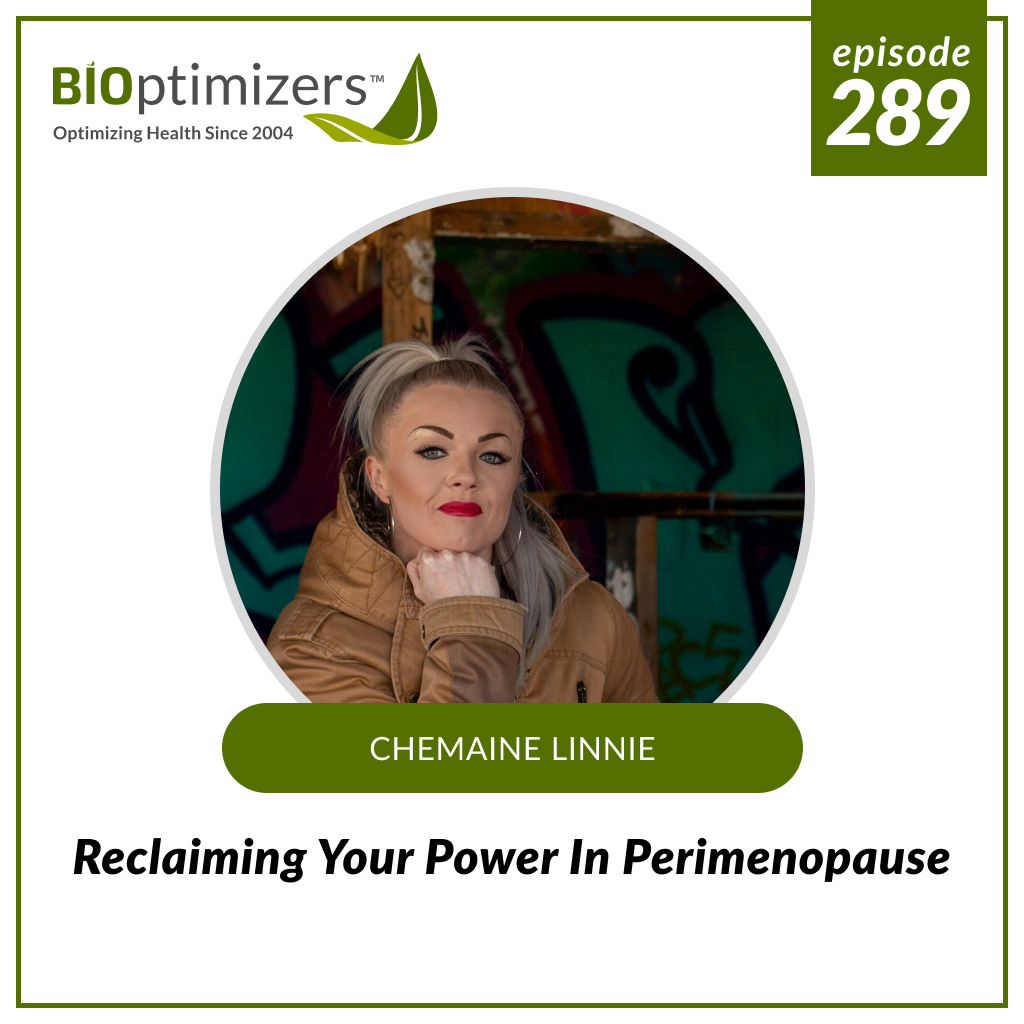



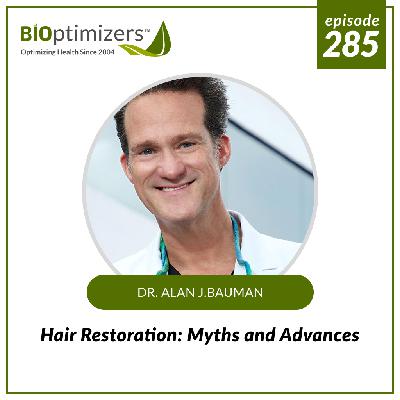
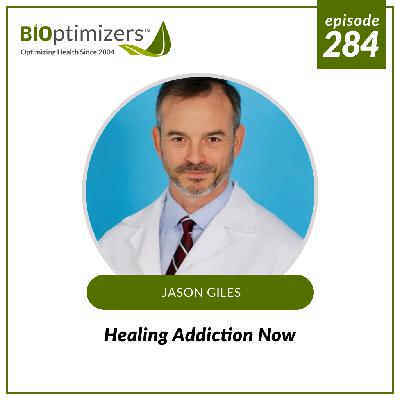
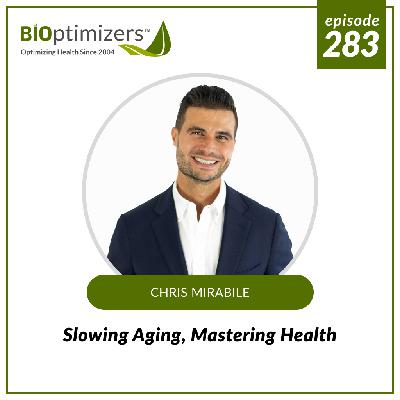
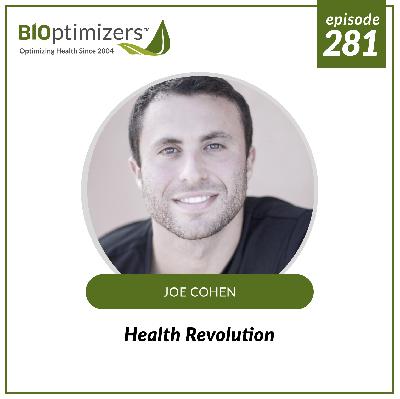
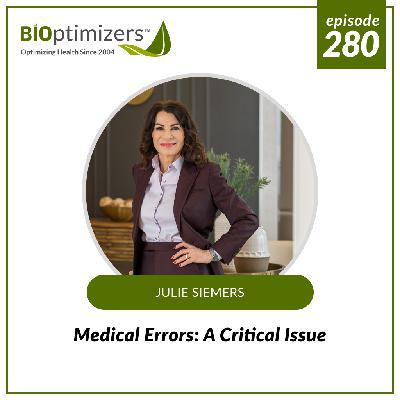
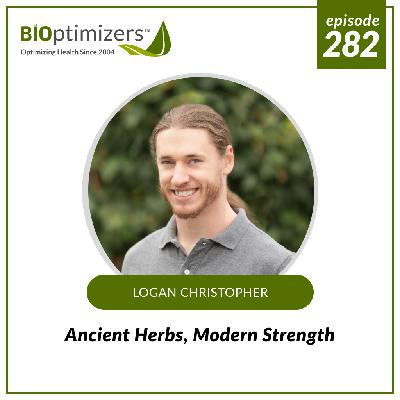

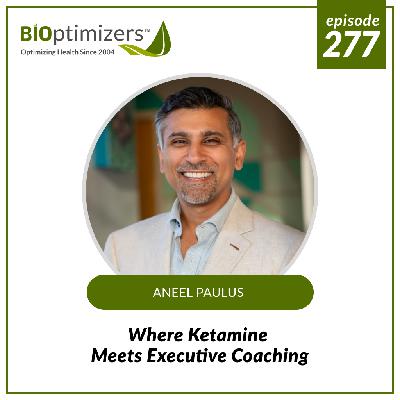
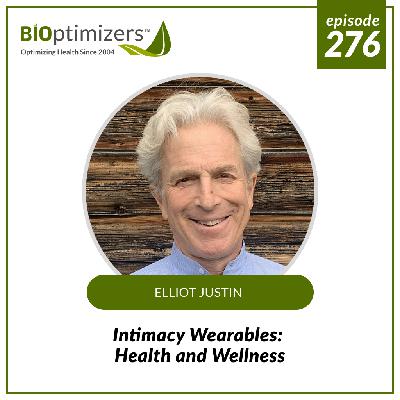
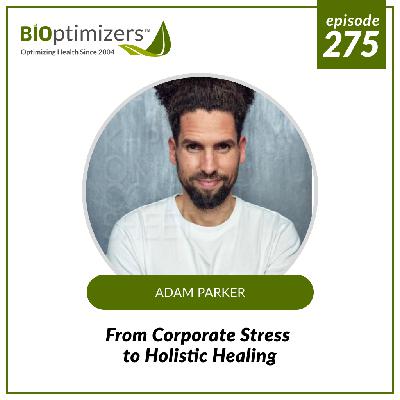

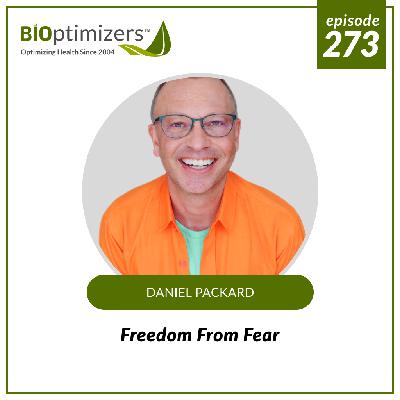
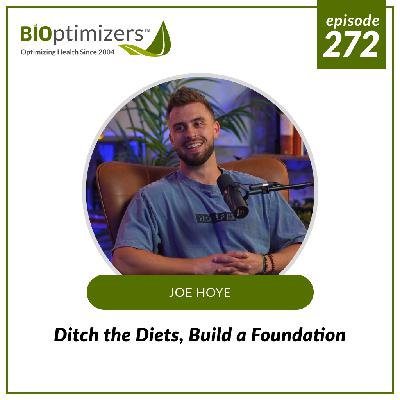



The guest chick has a lot of useful info, but she sounds unsure about it. Every sentence she utters ends in a question. Down with Up Talk!
Her Uptalk makes this unlistenable. My God, Ladies - Stop ending every sentence with a question-like up note!